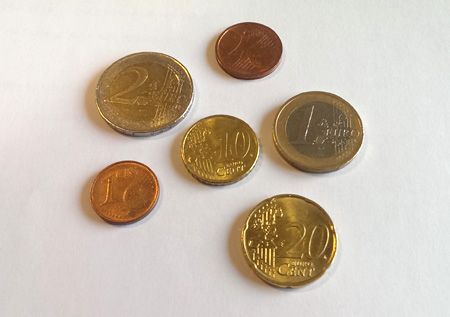First cities want to abolish small change
Kleve merchants want to ban 1- and 2-cent coins from stores.
Many people are annoyed by the small change of the euro. They would love to pull the 1 cent and 2 cent coins out of circulation and ban them forever. What has been practiced abroad for a long time, is now also being tried by the first cities in Germany.
Cent coins unpopular abroad
For a long time people have disdained the small cent coins. Especially in countries that were used to dealing with large sums of money for daily purchases before the euro currency union, people could not make friends with the small cent coins from the start.
In Italy, where before the introduction of the Euro, 1000 Lire bills were handled quite casually and one could become a Lire millionaire very quickly, and in Spain, where large Peseta bills were also in every wallet, no attention was paid to the cent coins. A real value could not and would not be seen in the 1, 2 and even 5 cent coins. Who began to pay its small cent coins on the bar, was looked at least incredulously up to derisive or it was refused immediately the acceptance of the small coins.
Euro small change
In the Netherlands and elsewhere, people have taken to rounding up or down the final amount they have to pay at the cash register to the nearest 5 cents. On crooked sums like 1,73 Euro you will not get change in the form of 2 cents in Holland as a rule. The sum is simply rounded up to 1.75 euros. At 1.72 euros is Abgerudnet to 1.70 euros.
City of Kleve
The Dutch way wants to go now the dealers of the North Rhine-Westphalian city Kleve. Not entirely by chance, because Kleve is located in the immediate vicinity of the German-Dutch border. The Dutch Niemwegen is only about 20 kilometers away.
The dealer group “Klever city network” would like to achieve that starting from this February the small cent coins in the value of 1 and 2 cent come from the traffic. The city’s merchants are to follow the example set in the Netherlands and, with immediate effect, make change payable to the nearest 5 cents. to round up.
High costs
This step is justified, again completely like in Holland, with the high costs, which cause the small cent coins. The purchase and redeposit of 1- and 2-cent coins at the local bank costs almost more than the coins are worth. To deposit a roll of coins containing 50 1 cent coins costs bank charges of 50 cents. Retailers pass on these costs to their customers as best they can.
Even the banks themselves are groaning under the effort caused by the smallest cent coins. In the Netherlands, the banks were able to achieve a saving of 30 million euros by effectively abolishing the 1- and 2-cent coins.
Future
It now remains to be seen how the campaign will be received by customers in Kleve. Only if they realize that they will end up with plus-minus-zero from all roundings up and down, the action will last.
However, customers who do not want to go along with the new system can still insist on getting their change out to the penny in the future.
